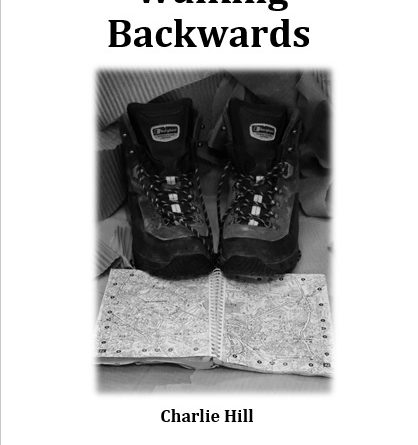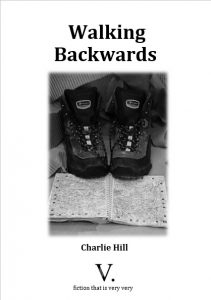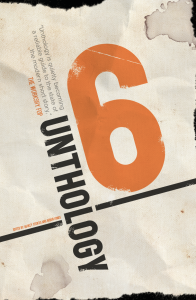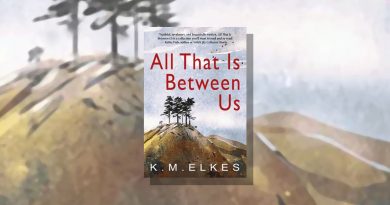Walking Backwards by Charlie Hill
-Reviewed by Neil Campbell–
I know Charlie Hill. He wears floral shirts. He once stared at me through the entirety of a reading I gave at Waterstone’s, Birmingham. He’s a lovely chap and we share an affection for short fiction. That being said, I haven’t read enough of his work.
This anthology contains two stories I first read when they came out in magazines, ‘Janet Norbury’ in The Lonely Crowd, and ‘Walking Backwards’ in Spelk. The quality of the magazines in which short stories and flash fictions are first published is often a useful indicator of quality, and The Lonely Crowd and Spelk are both splendid publications.
The mix of flash fiction and short story works well in this collection and is something the great American writer Stuart Dybek is fond of doing. Of course, Hemingway did it a hundred years ago in In Our Time, so it isn’t anything new. But Hill plays around with form in other ways too.
‘Walking Backwards’ is the kind of idea-based novelty that the flash fiction form lends itself to, a Nietzschean meditation on death that lingers beyond the final line, and in so doing overcomes what Richard Ford called ‘the inbuilt toxic slightness’ of the form.
The curious ‘Obsession’ reveals itself through the subtle playing around with syntax, and what in the hands of an apprentice writer might appear to be a couple of typographical errors are subtle ways of characterising the inarticulate protagonist.
In ‘The School Run’ Hill makes use of white space in the way of a poet, a technique used to make you hypothesise still further about dialogue that might otherwise seem mundane, but that’s part of the point, there’s poetry in the ‘rhythms of lives lived and lives managed’, and a splendidly stylish approach to a cliffhanger ending. Likewise ‘Love Story’ plays around with paragraphs, juxtaposing them to generate meaning before ending on a note of pure poetry. The library story, ‘Janet Norbury’ has echoes of what happened at Manchester Central – now ‘City’ – Library where thousands of books were trashed to accommodate a greater amount of empty space. But the story plays around with such misgivings.
‘The man on the bench’ – a lower case kind of man – is my favourite story here. I love stories where people walk, it is my favourite kind of structure, and the detailed references to Birmingham put me firmly in the place of protagonist, an old man recovering from the impact of war. Again, I think of Hemingway, and in all of these stories there’s his ‘iceberg’ technique – more below the surface than can be seen above. This technique is also used to poetic effect in ‘The allotment’.
‘Genocide’ is Kafkaesque. Though I hate to use that word, there’s nothing better to describe the mind-numbing routine of work. ‘The theme park’ is perhaps a little slight, though I may be missing something, ‘Blowing Leaves’ is a nice nod to a Raymond Carver story. They are all part of a pleasing variety on show here.
All the best prose writers have a love of poetry. Charlie Hill is a real writer, and a very good one too.





